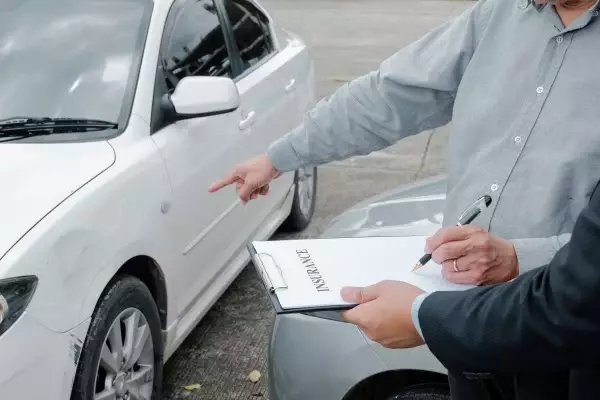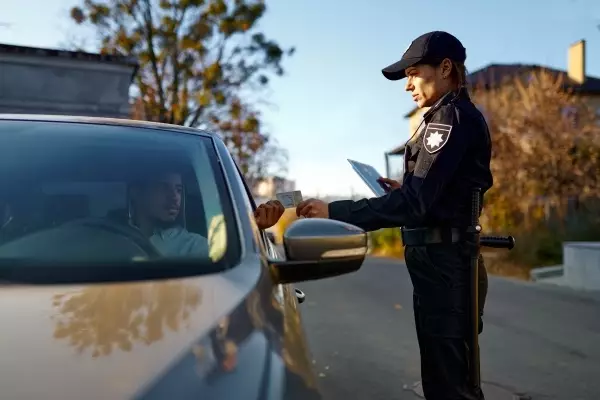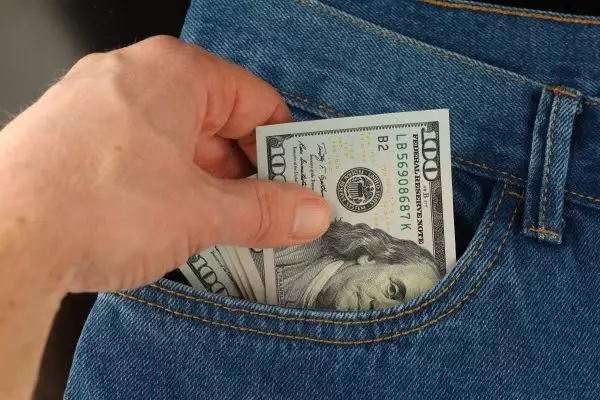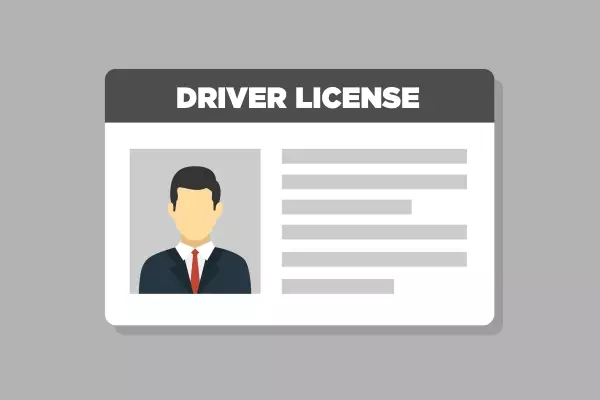Your driver's license gives you driving privileges. When your licenses gets suspended, your driving privileges are revoked. Having a suspended or revoked license can be frustrating, beyond just being unable to legally drive and putting a dent in your driver's record.. The number of fees, such as the reinstatement fees, as well as the process of getting your license reinstated, can feel overwhelming. Many people ask questions like:
How much does it cost to get your license reinstated? or
Can I pay to get my license reinstated online?
What can you do if you have your license suspended? In this article, you will learn how to reinstate your suspended license, how much the reinstatement fee is, how to get your license reinstated after a DUI, what to do if you have an unpaid ticket, and more answers to other questions.
What Are The Instances That Can Cause You to Lose Your Driving Privileges?
Many situations can lead to the suspension or revocation of your driving privileges.
1. Too many Points on your license
If you have been stopped and ticketed for multiple offenses, you may have received too many points on your license due. The Driver Point System varies per state, but for instance, some states have an accumulation of 3 or more points over a certain period of time will lead to a driver’s license suspension. Make sure to check your state laws to find out the threshold and time horizon. This is commonly called the Driver Point System.
A "habitual offender" status can result from someone having multiple driving offenses in a defined period of time or in some states even over any period of time.
2. DUI , OVI or DWI offenses
Driving under the influence (DUI) or driving while intoxicated (DWI) of alcohol or drugs are serious offenses. A DUI or imparied driving conviction in many states will automatically result in a license suspension. Depending on the blood alcohol content (BAC) level, number of offenses, and other factors, the length of the suspension may vary or the suspension might become a complete "revocation" of one's driver's license. License suspensions are generally for a lesser or temporary period of time until the driver has satisfied the court and a fee to the state's vehicle bureau. Revocations, on the other hand, are generally viewed as "permanent" or indefinite until a minimum number of years have passed and the offender can prove they have made the types of changes that help assure both the court and the motor vehicle administration that they will be a safe, responsible, and sober driver on public roadways.
3. Driving without Insurance or an already suspended license.
You may also have your license suspended if you are caught driving without insurance. Proof of insurance will be required when you register your vehicle, and is asked for by police officers during traffic stops. If you are caught driving without insurance, your license will likely be suspended and you will have to pay a fine. If your license is already suspended and you are driving without one, your license suspension will be further extended or revoked for continuing to break the law.
4. Failure to appear
If you miss a court date or forget to pay a fine, you may also have your license suspended. This is called a failure to appear (FTA) suspension. If you are failing to appear for a traffic violation, license suspension may be a result for missing your court date.
5. More serious traffic crimes
If you committed a hit and run and fled the scene after an accident, injured someone, or possibly killed someone (vehicular manslaughter) in a car accident, your license will be suspended or revoked for a long period or permanently revoked depending on the severity of the case. In some cases after a minimum number of years have passed since the criminal offense, and a person can demonstrate substantial life changes like sobriety, responsibility, and the abiltity to be law-abiding; an attorney may be able to assist with the resintatement of a driver's license. .
Once a driver's license is suspended or revoked, many people ask how much does it cost to get your license reinstated after a DUI? Each state is different in fines and fees and if the suspension/revocation involved impaired driving, inviduals seeking reinstatment must undergo a drug and alcohol or substance abuse assessment to provide ot the court and/or licensing bureau of the state. This is an additional cost to you which you should incorporate into an overall plan to resintate your license. Like court fines and state fees, substance abuse assessments or evlauations vary depending on the provider, the locale, and whether or not your state dictates how the assessment is performed.
What Should You Do After Getting a Suspended or Revoked License?
First of all, remember that it is possible you can restore a suspended or revoked license. All you need to do is to follow the instructions and submit all necessary documents required in your state to process your license reinstatement.
1. Documentation
First, you want to search the state vehicle bureau website where your license was suspended or revoked. Throughout the U.S., the restoration or reinstatement has to occur in the state where the license was lost and then the National Driver Registry will notify all other states or the restoration. Most state motor vehicle bureaus list all the steps needed to complete the reinstatement process and most have an online application form available to guide you through the process. While the application form can seem daunting at first, it may help to remember that it is also your guide you all the through to the finish line of getting your license back. Some states have longer applications than others but they may include different sections for: your contact information, demographics and legal history, a section for a doctor, mental health professional, or substance abuse evaluator to report on your current status, and other supporting information.
2. Pay fees
Once you have completed your application along with any required assessment(s), you should pay the required state fees next. License reinstatement fees vary by state. You will also want to be sure that your court fees or fines are paid up before sending your application in.
3. Driving assessment
Once you have paid the reinstatement fee, you may need to take a driving assessment. This road skills assessment is usually administered by the Department of Driver Services but can vary depending on which state you live in.
4. Vision test
After you have passed the road skills assessment, you may also be required to take a vision assessment to ensure you can see well enough to drive safely. If you wear corrective lenses, make sure to bring them with you. If you have met all the requirements, the Department of Driver Services issues a valid temporary license for 30 days. This license will allow you to drive until your regular driver's license arrives.
5. Car Insurance
Remember that you’ll need to have auto insurance before you start driving again. Although it is required by law, it is also the best way to protect yourself and your loved ones.
The reinstatement process can vary greatly. It may be be streamlined in some states while others make the process a lengthy and costly journey. If you are having difficulty moving forward, or feel that your one step forward is met with two steps backwards, you can reach out to an attorney for help or call New Directions Assessments to get more specific assistance from a third party that has experience.
Do You Really Need to Pay the Reinstatement Fee?
Yes, the reinstatement fee is necessary for getting your driver's license reinstated. This fee also helps to cover the costs associated with reinstating your driving privileges.
It is important to note that the reinstatement fees differ from the fines and penalties associated with your suspension. You will still need to pay any fines or penalties associated with your suspension or the traffic violations you have committed. For example, if you are caught driving without insurance, you could be fined $200 by the court on top of the $200 reinstatement fee, in this case.
Again, this varies per state so check with your local state laws to ensure you know what's right for you.
What if you can't afford to pay the reinstatement fee?
If you can't afford to pay the reinstatement fee, you can request a payment plan from the Department of Driver Services if available in your state. This payment plan will allow you to make monthly payments until the fee is paid in full.
What if you don't pay the reinstatement fee at all?
If you refuse to pay for your reinstatement fee, either because you can’t afford to pay it or you refuse to do so, your license will not be reinstated and will continue to be suspended. You will not be able to drive until you have paid the reinstatement fee in full.

Can Your Insurance Company Help You Pay the Reinstatement Fee?
If your license has been suspended, your insurance company can help you a few ways.
- they can help you find a new insurance policy if you need one
- they can also help you with the paperwork and assist you in the process of getting your license reinstated
- they can offer you discounts on your car insurance if you complete a driver's education course.
While your insurance company can help you reduce your costs, it is still ultimately your responsibility to get your license reinstated.
Are There Any Classes You Need to Take to Provide Proof of Your Driving Skills?
Yes, there are a few classes that you may need to take to get your license reinstated. Depending on your suspension, you may need to take a driver's education course, a defensive driving course, or both. A complete driver assessment may also be required.
Additionally, you might also be required to complete a substance abuse assessment and/or complete an alcohol or drug education class or program if your license is suspended or revoked for DUI or impaired driving.
Nonetheless, the best way to find out what assessment and/or classes you need to take to get your license reinstated is to contact the Department of Driver Services. They will be able to tell you which classes you are required to take and provide you with adequate information on how to sign up for those classes.
In most cases, you can find a list of approved driver education courses and defensive driving courses on your state’s Department of Driver Services or Motor Vehicle Bureau website.
What If You Got Your Driver's License Revoked?
If your license has been revoked, you will need to go through the process of applying for a new one. This includes taking a written assessment, a safe driver assessment, and paying all the necessary fees.
A revocation is a more serious offense than a suspension and is generally given for more serious offenses, such as repeat DUIs. Consequently, getting a revoked license reinstated can be more difficult than getting a suspended one reinstated. The revocation period is also generally longer, so it might take some time before you can get your driving privileges back.
Typically, the revocation period can take anywhere from one to five years, depending on the offense. The length of this waiting period will also depend on the state in which you live and the reason for your revocation.
Conclusion
Driving a motor vehicle is a privilege, not a right. And with that privilege comes a responsibility to yourself, your passengers, and others on the road. If you break the law or drive recklessly, you risk having your driver's license suspended or revoked. But, if you find yourself in this situation, all is not lost. You can get your license reinstated, but it will take time, money, and effort to get your suspension or revocation lifted.
To avoid driver's license suspensions, follow all traffic laws, drive safely, and do not drink and drive. If you have a traffic citation, take care of it on time. Pay your ticket promptly or contest it in court. And finally, make sure to keep your insurance coverage up-to-date at all times.
If you face a license suspension or revocation, take the necessary steps to reinstate your license as soon as possible. While it may be tempting to drive illegally while under suspension, the consequences of such a choice are financially, emotionally, and legally expensive. The sooner you take care of the problem, the sooner you can get back on the road legally.



